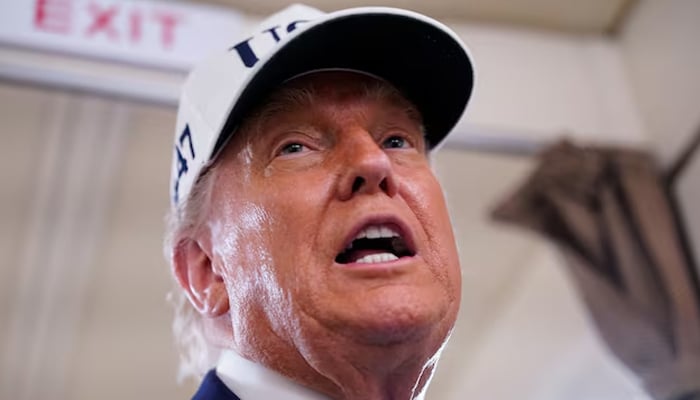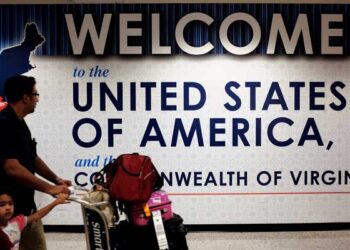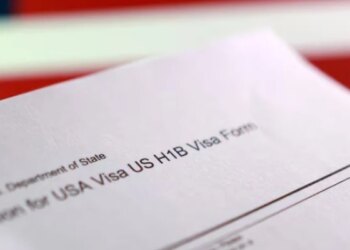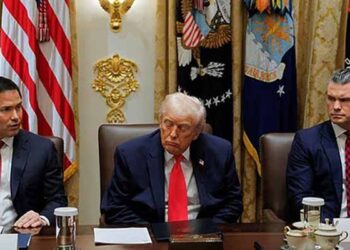Select Language:
- President Trump announces measures to safeguard the United States.
- Travel ban is part of Trump’s strategy to limit immigration.
- Democratic lawmakers express concerns over government policies.
WASHINGTON: President Donald Trump’s directive to prohibit citizens from 12 countries from entering the United States takes effect at 12:01 AM ET (4:01 AM GMT) on Monday. This action is framed by the president as necessary for protecting the nation from “foreign terrorists.”
The affected countries include Afghanistan, Myanmar, Chad, the Republic of the Congo, Equatorial Guinea, Eritrea, Haiti, Iran, Libya, Somalia, Sudan, and Yemen.
Additionally, entry from seven other nations—Burundi, Cuba, Laos, Sierra Leone, Togo, Turkmenistan, and Venezuela—will be subject to partial restrictions.
Trump, representing the Republican party, stated that these countries are perceived to harbor a “significant presence of terrorists,” lack cooperation on visa security, are unable to confirm identities of travelers, and have unsatisfactory records of criminal histories and high rates of visa overstays in the U.S.
He pointed to a recent incident in Boulder, Colorado, where an Egyptian citizen threw a gasoline bomb into a group of pro-Israel protesters, illustrating the need for these new restrictions, even though Egypt is not included in the travel ban.
This travel ban is part of Trump’s broader immigration policy and evokes memories of a similar executive order issued during his first term, which targeted seven predominantly Muslim countries.
Leaders and citizens from the nations impacted by the ban expressed shock and disbelief. Chad’s President Mahamat Idriss Deby Itno announced he has instructed his government to cease issuing visas to U.S. citizens in retaliation for Trump’s decision.
“Chad doesn’t have planes to offer or billions of dollars to donate, but we do have our dignity and our pride,” he said in a Facebook post, indirectly referencing countries like Qatar, which provided the U.S. with a luxurious aircraft for Trump’s personal use and pledged substantial investments in the U.S.
Afghans who supported the U.S. or participated in U.S.-funded initiatives are now worried that this travel ban might compel them to return to Afghanistan, where they could face retaliation from the Taliban.
Democratic lawmakers in the U.S. are also expressing their worries about this policy. “Trump’s travel ban affecting citizens from over 12 nations is harsh and unconstitutional,” tweeted U.S. Representative Ro Khanna late Thursday. “Everyone has the right to seek asylum.”







